Probability in Maths
Probability is the branch of mathematics where we determine how likely an event is to occur. It is represented as a numeric value ranging from 0 to 1. Probability can be calculated as:
- Favourable outcomes refer to the outcome we are interested in.
- Total outcomes represent the complete set of possible results an event can produce.
Below are a few examples illustrating the concept of probability in different situations:


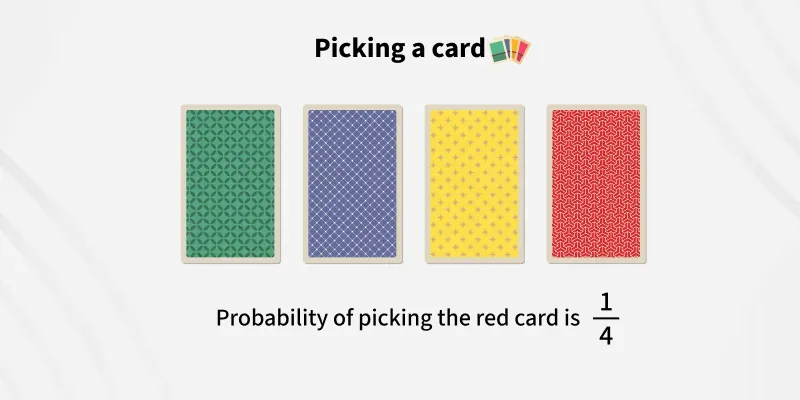

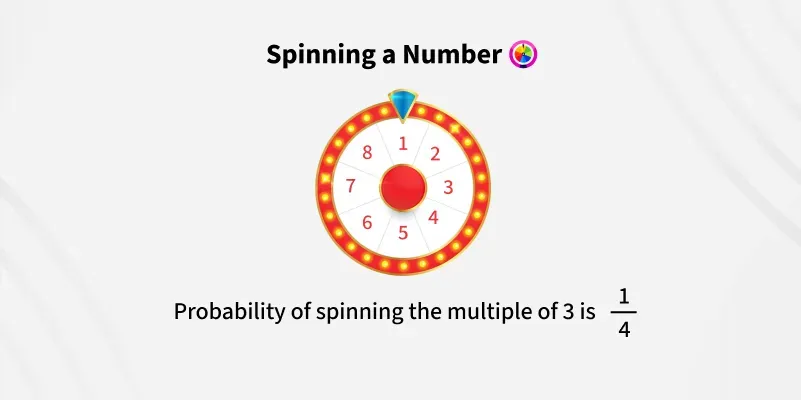

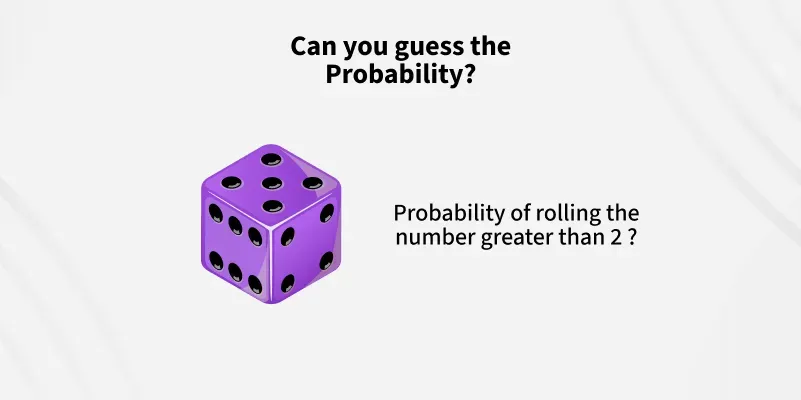

Examples of Probability
What are the chances of the following events when we pick a random number from 1 to 10 ?
- The number is divisible by 1
100% are divisible by 1, as all numbers are completely divisible by 1, so we say probability is 1.
- The number is divisible by 11
0% are divisible by 11 as, none of the number is divisible by 11 as they are greater, so we say probability is 0.
- The number is divisible by 2
50% are divisible by 2, numbers like (2, 4, 6, 8, 10), so we say probability is 1/2.
- The number is divisible by 5
20% are divisible by 5, numbers like (5 and 10) so we say probability is 1/5.
Probability for Beginners
In this section, you will explore the fundamental concepts of probability, key formulas, conditional probability, and Bayes' Theorem. By the end, you'll have a clear understanding of how probability is applied in real-life situations and develop the skills needed to solve related problems.
- Basic Concepts of Probability
- Probability Formulas
- Events in Probability
- Conditional Probability
- Bayes' Theorem
- Real-Life Applications of Probability
Probability for Aptitude Preparation
Probability-based questions are commonly asked in various examinations, such as placement tests and government-related exams. In this section, we will explore these types of questions, along with tricks and shortcuts to solve them quickly. Additionally, we will cover some interesting facts about probability to enhance your aptitude preparation.
Probability Practice Questions
Practice the knowledge you've acquired about probability through these practice questions (organized by difficulty level), along with other topics in probability, and take a quiz for a mock test.
- Easy Level Probability Questions
- Medium-Level Probability Questions
- Hard-Level Probability Questions
- Binomial Distribution Practice
- Conditional Probability Practice
- Probability Quiz
Probability for Programmers
For coders who wish to implement probability concepts in a specific programming language, this section covers key topics such as reaching points in steps, maximum sums, arithmetic progressions, and the Birthday Paradox.
- Probability of reaching a point in 2 or 3 steps
- Probability of the maximum weighted pair
- Probability of maximum sum in an array
- Probability of numbers in AP
- Birthday Paradox
- Probability of reaching all points in N moves
Advanced Topics on Probability
This section covers advanced probability topics, including random variables, Poisson and binomial distributions, and probability distribution functions.
- Probability Theory
- Random Variable
- Poisson Distribution
- Probability Distribution
- Probability Distribution Function
- Binomial Distribution
- Geometric Distribution
- Marginal Distribution

Probability in Maths | Formula, Theorems, Definition, Types, Examples

Sample Space in Probability- Definition and Solved Examples

Probability Rules

If you roll a dice six times, what is the probability of rolling a number six?
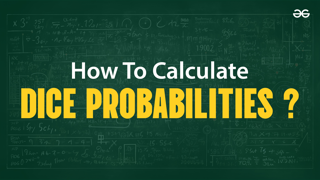
How to calculate Dice Probabilities?

Conditional Probability | Definition, Formula, Properties and Examples

Random Variables: Definition, Types, Examples & Formula

Discrete Random Variable - Definition, Formula, Types & Examples

Continuous Random Variable

Binomial Distribution in Probability | Formula, Definition & Examples
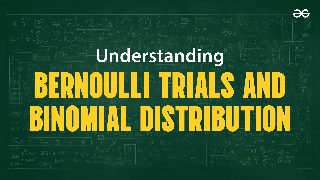
Bernoulli Trials and Binomial Distribution

Geometric Distribution | Definition, PMF, Formula & Examples
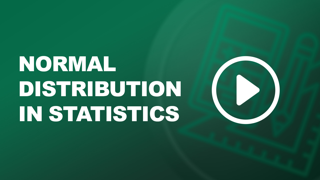
Normal Distribution | Definition, Formula, Properties of Normal Distribution

Poisson Distribution Examples with Solutions

